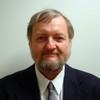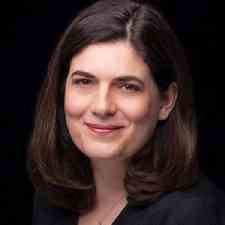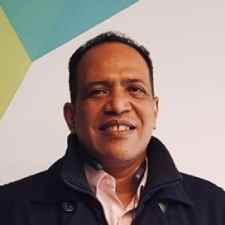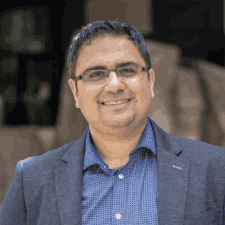Proceedings of the 9th International Conference
of Recent Trends in Environmental Science and Engineering (RTESE 2025)
June 04 - 06, 2025 | Carleton University, Ottawa, CAriyaada
The Plenary and keynote speakers information for the 9th International Conference on Recent Trends in Environmental Science and Engineering (RTESE 2025) is as follows:
Plenary Speakers

Dr. Steven C. McCutcheon
University of Georgia, USA

Dr. Irene Xagoraraki
University of Cartagena, Colombia
Keynote Speakers

Dr. Edgar Quiñones-Bolaños
University of Cartagena, Colombia

Dr. Zhe Yang
The University of Queensland, Australia

Dr. Nariman Yousefi
Toronto Metropolitan University, Canada
RTESE 2025 Plenary and Keynote Speakers

Dr. Steven C. McCutcheon
University of Georgia, USA
Steven McCutcheon is an international expert in ecological, environmental, and civil engineering; ecotoxicity; toxic waste management including bio and phytoremediation; contaminant fate and transport and exposure and risk assessment in surface and ground water; water quality; hydrodynamics and sediment transport; hydrology; water resources; sustainability; and climate change. Dr. McCutcheon is renowned as a pioneer of sustainable hazardous waste cleanup. Critically acclaimed, his third book and several papers define the newer field of phytoremediation. As a National Expert and Senior Environmental Engineer (retired) with 37 years of experience with the USEPA and US Geological Survey, Dr. McCutcheon wrote technical guidance on waste management and served on rule-making working groups.
Topic of Plenary: N/A

Dr. Irene Xagoraraki
Michigan State University, USA
Her research focuses on microbial water quality emphasizing prevention of disease and protection of public health. She and her students have been studying: (1) environmental surveillance approaches for identification and prediction of viral outbreaks, (2) the fate of viruses and antibiotic- resistant bacteria in the built environment and in natural systems, (3) virus inactivation and removal with membrane bioreactors and other water treatment processes. She has authored multiple peer-reviewed scientific journal publications and book and encyclopedia chapters. Her research has been covered by news organizations such as the New York Times, BBC and others. In 2020 her wastewater surveillance work for early detection of viral outbreaks was featured in Women in Engineering and Science: Investigations by Prominent Female Engineers, Springer Nature, Switzerland. In 2022 she was featured in the Smithsonian: Stories of Women in STEM: Biotechnology. For her research related to viruses in environmental systems and prediction of outbreaks she received awards by the US Environmental Protection Agency (2018) and by the American Society of Civil Engineers (2021 and 2022). In 2023 she received the William J. Beal Outstanding Faculty Award at Michigan State University.
Topic of Keynote: An Academia-Industry-Government Partnership That Monitors and Predicts Outbreaks in Tri-County Detroit Area Since 2017

Dr. Edgar Quiñones-Bolaños
University of Cartagena, Colombia
Edgar Quiñones. Bolaños is a Civil Engineer graduated from the University of Cartagena. He also holds a Specialization in Physical Sciences from the National University of Colombia, and a master’s and a PhD in Environmental Engineering from the University of Guelph (Canada). His research interests are in the field of environmental management, including modeling and studies related to fate mechanisms of pollutants in water, air, soil and their interaction with human health, biota, and the cultural heritage of the Colombian nation. He has more than 32 years of experience as a researcher, with more than 100 publications (books, peer-reviewed articles, presentations), of which books such as “Environmental Factors in the Walls of Cartagena de Indias” and “Assessment of Environmental Risk Levels in the District of Cartagena de Indias” stand out. He has international experience with the development of projects with Toronto Metropolitan University and Guelph University in Canada, Macquarie University in Australia, Purdue University and the University of Southern California in the United States. He is currently the director of the environmental modeling research group (Category A1), coordinator of the master’s degree in environmental engineering and the PhD program in engineering at the University of Cartagena.
Topic of Keynote: A Knowledge Management Model for Strengthening Coastal Aquifers Resilience in Latin-American Countries Against Potential Climate Change Impacts

Dr. Zhe Yang
The University of Queensland, Australia
Dr. Zhe Yang currently is an ARC DECRA fellow in the School of Chemical Engineering/Dow Centre for Sustainable Engineering Innovation at the University of Queensland. He obtained his PhD degree in Environmental Engineering in 2018 at the University of Hong Kong (PhD supervisor: Prof. Chuyang Tang). He was appointed as research assistant/post-doc fellow in HKU from Nov 2018 to July 2021 and was further promoted to Research Assistant Professor from July 2021 to Dec 2023. He was recognized as a Top 1% Scholar worldwide ranked by Clarivate Analytics by citations in 2023. Dr. Yang has more than 10 years of R&D experience in membrane technology in the context of desalination, water reuse, and water/wastewater treatment. To date, he has published over 70 papers and two book chapters, with total citations of over 6,600 and an h-index of 42 based on Google Scholar. Most of these papers (90%) are published in Nature indexed/top tier journals in the field of environmental engineering and membrane technology, including Nature Communications, Nano Letters, Chemical Society Reviews, Environmental Science & Technology, Environmental Science & Technology Letters, Water Research, and Journal of Membrane Science. He has been awarded numerous prestigious awards, including The First Prize of the Water 2023 Young Investigator Award, Early Career Stars of Separation & Purification Technology, The 2022 ACS ES&T Engineering Best Paper Award, the Geneva International Exhibition of Inventions Gold Metal in 2019, etc. He currently serves as the Early Career Editorial Board member of the leading journal in his field (Desalination, IF 8.3).
Topic of Keynote: Membrane-Based Energy-Efficient Resource Recovery From Wastewaters

Dr. Nariman Yousefi
Toronto Metropolitan University, Canada
Yousefi is developing an innovative water filtration technology. Made of graphene, a carbon-based material whose full properties were discovered in 2004, his "sponge" has the potential to revolutionize the kind of water we drink. "I'm trying to make it possible for everyone to have access to safe, clean water," he says. "From northern communities in Canada to developing countries around the world." When scaled for home-use, his filtration system will be small enough to fit in a jug yet powerful enough to absorb contaminants such as heavy metals, pharmaceuticals, hormones, illicit drugs, bacteria and viruses, as well as nano- and micro-plastics, many of which current technologies cannot remove. Yousefi’s filter will also be eco-friendly. "This needs to be a basic operating principle for engineers, especially in the water field," he says. "Everything you design and invent needs to be green."
Topic of Keynote: Nano-Engineered Graphene-Based Porous Materials for Water Treatment